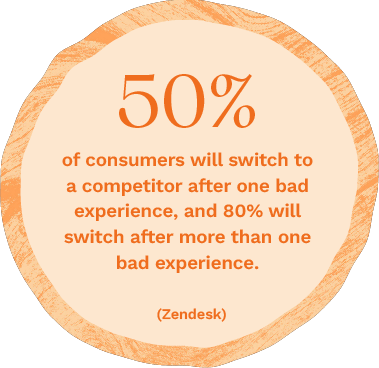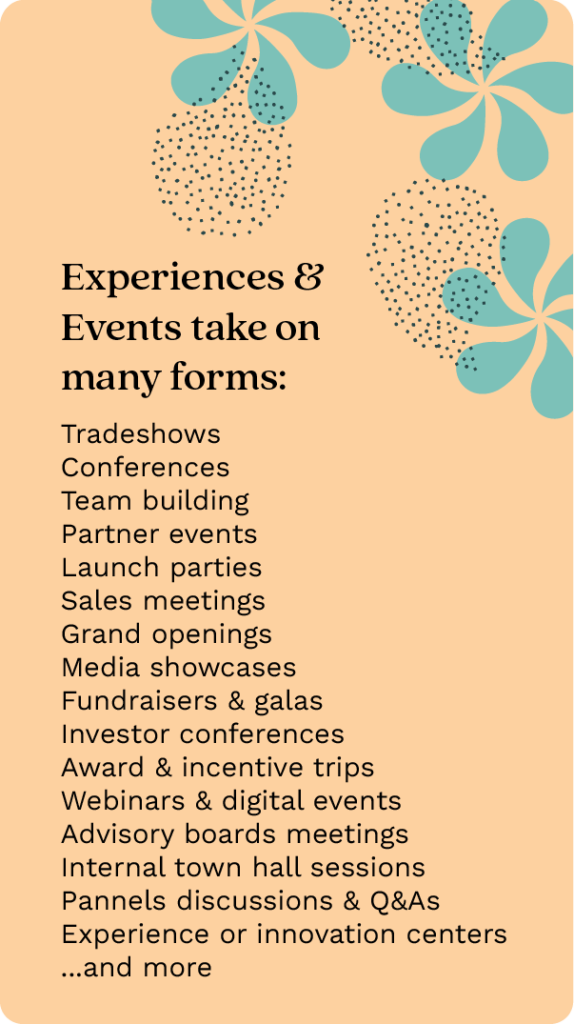First impressions matter. Experiences can be the first interaction potential clients, partners, and customers have with your brand. A smoothly run event portrays your business as organized, detail-oriented, and professional. On the other hand, hiccups can produce an unfavorable effect that is hard to overcome.

Event logistics refer to the intricate web of planning, coordinating, and executing every detail of your planned experience. They are critical to ensure that your event runs seamlessly. From venue or digital platform selection and registration to promotion and catering, every element plays a pivotal role in the overall success of your event. This may sound like a no-brainer. But I’ve witnessed plenty of poorly organized, chaotic experiences that left lasting negative impressions. This results in a negative view of the organization and reputational harm. All of which could’ve likely been avoided with better logistical planning.
In essence, logistics are the linchpin tying together all aspects of a successful event. Consider the following:
The heart of any successful event lies in the experience it provides attendees. When logistics are managed flawlessly, attendees can focus on the content of the event, engage with your brand, and enjoy themselves. Long registration lines, confusion on where to go and when, technical glitches in person or with the platforms used for virtual events, or catering mishaps can detract from the overall experience and lead to frustrated attendees.
Networking Opportunities
Events provide an unparalleled platform for networking. When logistics are well-managed, attendees can move smoothly through the event space, be where they need to be at the right time, and make meaningful connections. Similarly, virtual events can make it easy to share profile information and create forums for interactivity. Poor logistics can hinder these moments and limit the potential of your event to facilitate business growth.
Brand Reputation and Trust
Your brand’s reputation is at stake during events. In fact, 91% of consumers reported that they would be more inclined to purchase a brand’s product or service after attending an event. So, imagine how quickly logistical failures could erode attendees’ trust and ultimately harm your business.
Optimal Resource Allocation
Effective logistics planning ensures that your resources—time, money, and effort—are used judiciously. A detailed plan helps prevent overspending in areas that do not contribute to your event goals, minimize waste, and maximize the return on investment.
Tips for Smooth Running Events
Ready to make a lasting first impression? Then it’s time to get your event in motion. There are pitfalls to avoid and experienced event management know-how to draw on. Here are some of our tips:
- Start early: Planning an event involves countless moving parts. Begin the process well in advance to ensure that you have ample time to address all the details.
- Know your strengths: Consider partnering with event planning professionals or agencies. Their expertise can streamline the logistics process and bring a wealth of experience to the table.
- Create a comprehensive plan: Develop a detailed event plan that covers every aspect of logistics, from venue selection and layout to catering, technology setup, transportation, and contingency plans.
- Communication is key: Maintain open lines of communication with all stakeholders, including vendors, suppliers, and internal teams. Clearly communicate expectations, requirements, and event goals to avoid misunderstandings.
- Test technology: If your event involves technology, such as audiovisual equipment or online registration systems, conduct thorough testing before the event to identify and rectify potential issues.
- Contingency planning: Despite meticulous planning, unforeseen issues can arise. Have a well-thought-out contingency plan in place to address any emergencies that might disrupt the event.
- Staff training: Educate your staff, venue staff, internal employees, and volunteers so they can address or handle various logistics issues. A knowledgeable and well-prepared team is essential for smooth on-site execution.
- Feedback loop: After the event, gather feedback from attendees, staff, venue, and vendors. Analyze what worked well and what could be improved to refine your logistics strategies for future events.
Remember, the Devil is in the Detail

In the world of experiences, flawless logistics serves as the foundation for success. Businesses stand to gain immensely from investing time and effort into planning and executing logistics with precision. Remember, attendees might not notice the seamless logistics, but they will certainly recognize when it doesn’t happen or feel the impact of an exceptional, memorable event. By focusing on the finer details of your event, you are setting the stage for your business to shine, make meaningful connections, and solidify its reputation in the eyes of your attendees.


Pingback: A Call for Ethical Marketing in a Conscious Buyer Landscape
Pingback: Tips for leading effective meetings that boost your professional brand - Wild Plum Marketing